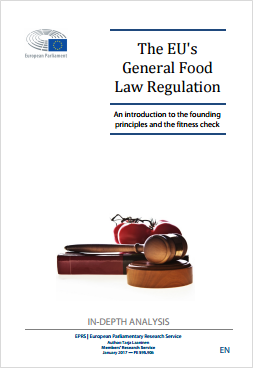The EU's general food law regulation
An introduction to the founding principles and the fitness check : in-depth analysis
The General Food Law Regulation (Regulation (EC) No 178/2002) was drafted following a series of food incidents in the EU in the late 1990s, including the BSE (bovine spongiform encephalopathy) outbreak and the dioxin scare. It is the act underpinning current EU food and feed legislation and defines its general principles, requirements and aims.
The regulation also established the European Food Safety Authority (EFSA), an independent agency tasked with providing decision makers with scientific advice on food safety issues. Furthermore, the General Food Law Regulation lays down the main procedures for the management of emergencies and crises, including the Rapid Alert System for Food and Feed (RASFF), designed to enable a swift reaction when risks to public health are detected in the food chain.
As part of its Better Regulation agenda, the European Commission is currently finalising its fitness check of the General Food Law Regulation. The review will assess the key components of this founding act. The results of the review are expected in the course of 2017
EPRS | European Parliamentary Research Service
January 2017




















